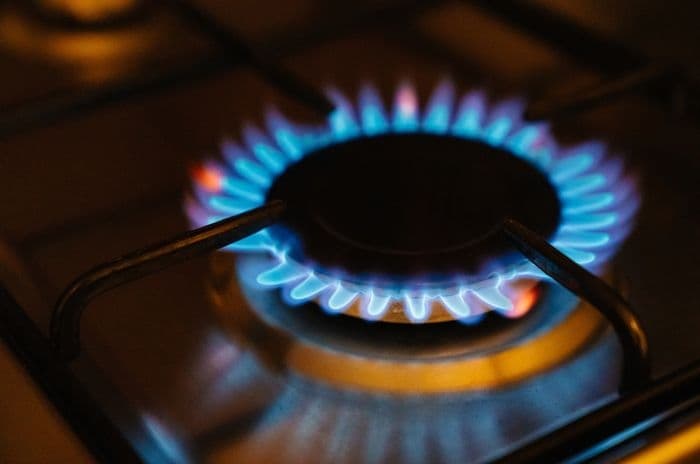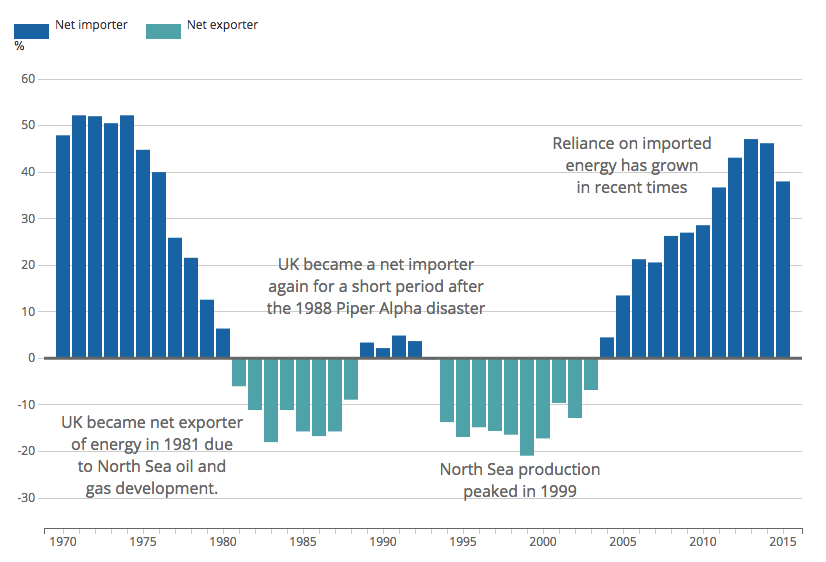Home > Energy > News > Renewables are up, so why aren't energy bills down?
Renewables are up, so why aren't energy bills down?
Renewables produced the greatest amount of electricity ever recorded in the first quarter of 2017, according to new data recently published by the Government.

Electricity produced by renewable sources made up 26.6% of all electricity generated in the UK in the first three months of the year, an increase of 1% over the 25.6% of Q1 2016.
At the same time, production costs for renewables are falling with every passing year, with a recent report from the United Nations Environment Programme (UNEP) and the Frankfurt School finding that it cost over 10% less in 2016 to produce a megawatt of energy via solar and wind power than it did in 2015.
Yet this raises an important question, which is that if renewables are becoming cheaper and making up more of the UK's energy diet, then why aren't energy bills going down?
Records and non-records
Smart meters helping despite bugs
Are the CMA going too easy on providers?
Ofgem and Gov also share in high bills
In the first three months of this year, renewables were responsible for the generation of 24.8 TWh (terawatt hours) of electricity.
This quantity is the new record that has been bandied about in the press, yet it's important at this point to note a distinction.
Namely, the percentage of electricity generated in the UK by renewable energy is not in fact a new high, falling 0.2% short of the 26.8% peak set in the final quarter of 2015.
As such, as a proportion of the UK's overall electricity generation, renewables aren't growing that impressively, perhaps already going some way to suggesting why, for example, every member of the Big Six except British Gas raised electricity bills for their customers over the winter.
Nevertheless, the increase in quantity of renewably produced electricity is still to be welcomed, which is something that numerous bodies in the energy industry have been doing.
For instance, RenewableUK - via the medium of their executive director, Emma Pinchbeck - said, "It's great to see that onshore wind has set a new record, producing more electricity than ever at a time of year when we need it most."
'More for less'
RenewableUK also noted one of the positive implications of this maturation, with Ms Pinchbeck adding, "Renewable energy is a mainstream technology, which is cheaper and more advanced than ever."
That renewables are becoming cheaper is entirely true, as revealed in the aforementioned UNEP-Frankfurt School report.
In this report, it was observed that, while global investment in renewables fell by 23% to $241.6 billion in 2016, global capacity of solar, wind, biomass, geothermal and other green sources rose from 127.5GW to 138.5GW.
Yet once again, if renewables are becoming cheaper and more prevalent - both in the UK and globally - then why are electricity bills in Britain still rising by as much as 15%?
Imports and wholesale prices
This is a complex question, yet a large part of its answer can be expressed in a single word: imports.
As the Office for National Statistics reported last August, the UK's dependence on imported energy has returned to the heady heights of the 1970s:

Source: Digest of UK Energy Statistics (DUKES) 2016, Department for Business, Energy and Industrial Strategy (BEIS)
And what this reliance means is that, as the wholesale price of energy goes up on world markets, the bills of energy customers in the UK also rise.
Going up is precisely what wholesale prices did in the second half of 2016, with the market price of Brent Crude rising by 22.5% between the beginning of July and the end of December.
Incidentally, such rises were high enough for at least one independent supplier, GB Energy, to go bust as a result.
And since the proportion of electricity produced via renewables hasn't actually increased compared to the peak of Q4 2015, it becomes unsurprising that the growing cheapness of solar and wind hasn't been enough to significantly dent bills.
Insuring profits
Of course, as the above graph of Brent Crude's fluctuations over the past year show, wholesale prices haven't consistently risen, and have in fact decreased since reaching a relative high at the end of 2016.
However, while this would suggest that energy providers are therefore part of the reason as to why bills aren't going down, the truth is a little more complex than outright greed.
While it could be argued that suppliers are keeping bills high unnecessarily, they're most likely doing so in order to insure their future profit margins against the volatile and unpredictable nature of world markets.
In other words, it is their insecure jealousy regarding their own profits - along with the UK's continued reliance on imports - that is keeping bills high despite recent advances in renewable energy. And since this will most likely continue for as long as Britain needs to import energy from overseas, it provides all the more reason for the Government to continue supporting rather than hindering the development of renewables.
Receive consumer updates that matter in our newsletter

We are independent of all of the products and services we compare.

We order our comparison tables by price or feature and never by referral revenue.

We donate at least 5% of our profits to charity, and we aim to be climate positive.
Latest News

2 January 2024
Energy prices increase by 5%
23 November 2023
Energy price cap to rise 5% in January 2024
24 October 2023
Energy companies must do more to support customers

